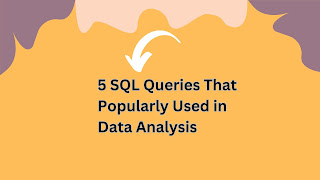I have shared the top 15 business areas where you can apply artificial intelligence.
Real-time Artificial Intelligence Business Applications
1: Medicine Including interpretation of medical images, diagnosis, expert systems to aid GPs, monitoring and control in intensive care units, design of prosthetics, design of drugs. The IntellipathTM pathology diagnosis system has been deployed in hundreds of hospitals worldwide. AI is being increasingly used to provide solutions regarding vector-borne diseases like malaria.
2: Robotics
Including vision, motor control, learning, planning, linguistic communication, cooperative behavior. Robots are usually trusted with jobs that are deemed dangerous and sometimes impossible for a human being. Today, many industries use them for jobs that are to be performed with utmost efficiency and without the slightest possible chance of lapse in concentration.
3: Engineering
Fault diagnosis, intelligent control systems, intelligent manufacturing systems, intelligent design aids, integrated systems for sales, design, production, maintenance, expert configuration tools (e.g. ensuring sales staff don't sell a system that won't work). Diagnostic systems based on AI technology are being built into photocopiers, computer operating systems, and office
automation tools to reduce service calls. Stand-alone units are being used to monitor and control operations in factories and office buildings.
4: Software engineering
work on program synthesis, verification, debugging, testing, and monitoring of software. AI systems configure a custom computer, communications, and manufacturing systems, guaranteeing the purchaser maximum efficiency and minimum setup time while providing the seller with superhuman expertise in tracking the rapid technological evolution of system components and specifications.
Interfaces and "help" systems: as computers are used for more and more applications that involve interaction with human beings, there are ever-growing pressures to make the machines easier for non-experts to use.
5: Information management
This includes the use of AI in data mining, web crawling, email filtering, etc. For example, a company in California uses AI to help retailers mine for consumer data by sifting through the ages, postcodes and buying habits of people who buy goods over the internet. Google is a set of applied artificial intelligence platforms, which are able to ‘learn’.
6: Entertainment
Increasingly AI is being used in computer games and in systems for generating and controlling synthetic characters either for textual interaction or generating films with cartoon characters or interactive avatars in virtual worlds.
7: Architecture, urban design, traffic management
Tools to help solve design problems involving multiple constraints, helping to predict the behaviors of people in new environments, tools to analyze patterns in observed phenomena.
8: Crime prevention and detection
Detection of forgeries, learning to detect evidence of crooked police officers, software to monitor internet transactions, helping to plan police operations, searching police databases for evidence that crimes are committed by the same person, etc. Intelligence agencies and police departments across the world are highly dependent on artificial intelligence, which is used to detect bombs and explosives and defuse them.
Forensic analysis of CCTV images using AI vision technology is being developed to recognise criminals. Computer programmes that can recognize fingerprints or voices for use in security systems are being developed.
9: Commerce
Using software agents of various sorts to provide, search for, analyse or interpret information, make decisions, negotiate with other agents, etc. PEGASUS is a spoken language interface connected to the American Airlines EAASY SABRE reservation system, which allows subscribers to obtain flight information and make flight reservations via a large, on-line, dynamic database, accessed through their personal computer over the telephone.
The use of automatic scheduling for manufacturing operations is exploding as manufacturers realize that remaining competitive demands an ever more efficient use of resources - companies such as Toyota and Bausch & Lomb use the technology to streamline their production supply chains. Evolutionary computing is used in scheduling to find the most efficient way to roster staff or allocate resources.
10: Space
Control of space vehicles and autonomous robots too far from earth to be directly manipulated by humans on earth, because of transmission delays. Nasa uses AI to help plan and schedule space shuttle maintenance.
11: Military activities
This may be the area in which most funds have been spent. It is also not easy to learn about the details.
12: Finance
Credit card providers, telephone companies, mortgage lenders, banks, and governments employ AI systems to detect fraud and expedite financial transactions. The US Internal Revenue Service apply artificial intelligence techniques and other advanced computing skills to solve IRS business problems using neural networks, data mining, encryption, agent-based modeling, expert systems, text generation and natural language, and sophisticated Web applications.
Artificial Intelligence is heavily used in investing in stocks, organizing operations and managing properties. Fraud detection systems use neural networks to detect stolen credit cards. Financiers use neural networks to predict stock market trends and genetic algorithms to optimize their portfolios.
13: Telecommunications
language and speech technology systems, automatic speech recognition, speech translation systems, Call Centers, and Help Desks often use case-based reasoning to provide instructions on how to deal with common problems.
14: Marketing
AI is being used to develop more targeted, relevant, and timely marketing programs to increase customer attrition rates, respond (in most cases proactively) to customer events, and create customer communication strategies that are personalized, relevant and delivered at precisely the right
time for maximum impact.
15. Retail
The major AI applications you can use in the retail business, warehouse, and delivery to the end customers.



.jpg)

Comments
Post a Comment
Thanks for your message. We will get back you.